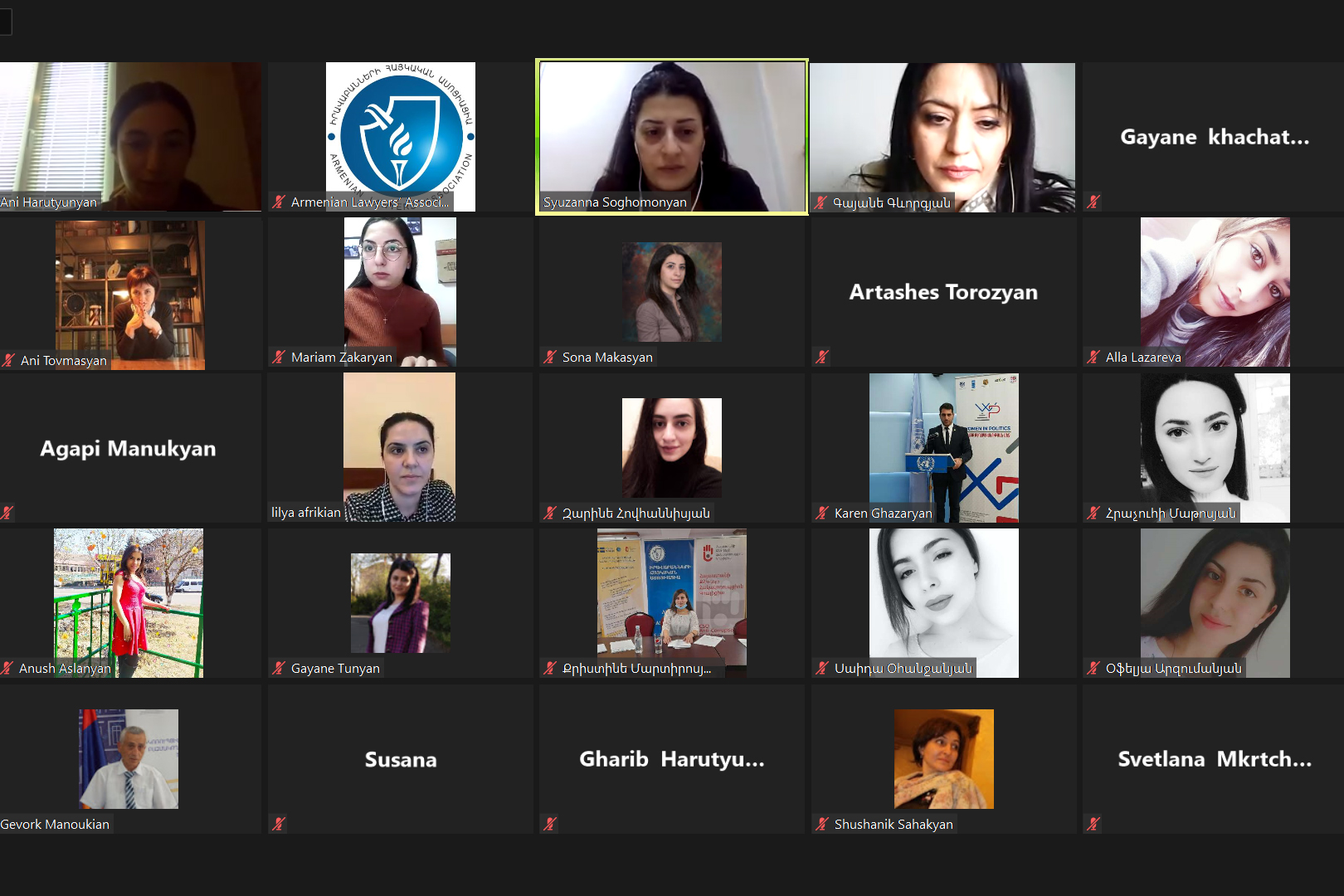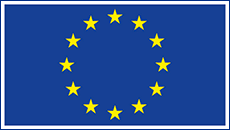
On 10 December, an online discussion in the format of a public-private dialogue on the development of the Open Government Partnership (OGP) National Action Plan 5 on the open the Education sector was held.
The event was organized in the framework of the “Co-creation Support for the 2020-2022 OGP National Action Plan” project implemented by a consortium of 3 Non-Governmental Organizations “Armavir Development Center”, “Armenian Lawyers’ Association” and “Freedom of Information Center” with the support of the “OGP” Support Unit.
The aim of the initiative is to improve the governance system through the active involvement of civil society, to promote its efficiency, by increasing the level of transparency, credibility and accountability of state-citizen relations. In order to do this, government and civil society representatives develop action plans, setting out clear measures to achieve the goals of the Initiative.
According Ms. Lilya Afrikyan, OGP Armenia Program Coordinator under RA Prime Minister’s Office/RA Contact Person, in 2018,overall 18 commitments were outlined, as a result of which the state undertook 11 of them, one of which was to ensure access to education and reduce corruption risks.
“In fulfillment of this commitment, it was necessary to create an open, accessible, universal portal of education, where it would be visible how many free places are available in a definite school and class, and as a result the authority of a specific institution to decide whether to accept or not to accept a student, would not be arbitrary,” she said.
According to Afrikyan, the process was initiated before the epidemic, so the admission was already organized online during the epidemic.
“It should be noted that in addition to the steps taken by the discussed commitment, the RA Ministry of Education, Science, Culture and Sports also launched the electronic version of education. We are aware that many teachers continued to use the Viber application because they did not have special electronic knowledge,” the speaker noted.
Lilia Afrikyan highlighted the continuous activity of the civil society, to be demanding, as, in her opinion, it is difficult to reform the system without complaints and cooperation.
Ms Ani Harutyunyan, the representative of “Armavir Development Center” NGO mentioned that in 2018 “Armavir Development Center” with the support of the World Bank implemented a program dedicated to the joint development and implementation of the 4th Open Government Partnership National Action Plan: “At the launch of the 5th plan, we consider it possible to improve the process of joint development of the plan, to ensure a comprehensive, dialogue of all stakeholders, and later the feedback, to raise the level of awareness on OGP issues.”
Ms. Syuzanna Soghomonyan, the program expert at the Armenian Lawyers’ Association, presented OGP commitments in the field of education undertaken by the Republic of Armenia”:
She noted that as a result of the monitoring of the National Strategy for the protection of Human Rights and implementation of its measures, which she carried out, it was found out that two measures were planned in the field of education, both of which were planned to be implemented during the second half of 2020. Only one of them has been partially implemented, that is, to fix legislatively the mechanisms for identifying, registering and exercising the right to education for children left out of education. In this regard, the Ministry of Education, Science, Culture and Sport reported that a procedure had been developed on the relevant topic, which was submitted to the Prime Minister’s Office. The project has not been published yet.
“The next action was: to adopt an inclusive education strategy and action plan for all levels of education. The Ministry of Education, Science, Culture and Sport did not provide information in this regard. It should be noted that previously in the four Open Government Partnership National Action Plans, provisions related to education were included in the second and fourth plans.
The second plan included one commitment on education: ensuring the election of the governing boards of the RA state educational institutions and the transparency of the annual budget planning and expenditures. The result was an order of the Minister, by which a working group with the participation of NGOs was set up, which developed the procedure of collegial management of “State Educational Institution” SNCO,” Ms Soghomonyan mentioned.
In total, the OGP initiative has so far had 183 international commitments on education, 118 of which were evaluated by the Independent Reporting Mechanism (IRM). 55 OGP members have implemented these commitments, and 28 are currently in the implementation process.
Syuzanna Soghomonyan presented the OGP international experience in this field, particularly referring to the examples of Slovakia, the Czech Republic, Tanzania and Argentina.
Ms. Anush Aslanyan, President of the “Equal Rights, Equal Opportunities” NGO for people with disabilities, said the organization had received numerous alerts/calls that the government was unable to provide adequate computers to schools, when due to the epidemic, the lessons were organized remotely. In addition, some of the lower social classes do not have computer equipment, while others do not have sufficient technical skills. Inclusive children with disabilities fell behind in education process.
Mr. Karen Ghazaryan, a graduate of the Anti-Corruption School for Young Leaders, said that many of the faculty did not have computer skills themselves, so class time was reduced and no time was spent on teaching.
“The fact that education was not provided to the students or was provided in less and low quality was not taken into account, but in spite of this, tuition fees were demanded from students in full. Tuition discounts, Government grants were discriminatory, not based on real need assessment.The methods used by the Government to select high-achieving students are problematic. As a result, really high-achieving students were deprived of the opportunity to receive privileges. Moreover, government subsidies were provided through a non-simplified procedure. The developed criteria were not need based. Students were denied loans under Government subsidy programs for various reasons: lack of documents, registered job or no job at all, no credit history and etc. There were cases when students were left out of universities due to non-payment of tuition fees as a result of epidemic,” Ghazaryan mentioned.
Ms Sona Makasyan, Program Coordinator of the Armenian UN Association (AUNA), said that as a result of the organization’s surveys with high school students in Ayrum and Vazashen communities of Tavush region, it became obvious that young people are convinced that distance education has not been able to ensure the appropriate quality and effectiveness of education.Students have divided the 2020 educational phase into two periods: March-June and September-December. Young people considered the first period to be extremely ineffective, as the classes were mainly organized through the Viber social platform, in the form of letters.As for the second round, the lessons were organized in a certain way, as training courses were organized for teachers in that period, and the ministry posted various thematic-practical lessons on the website http://esource.armedu.am/ for the teachers in addition to the classesorganized through the Zoom platform.
Ms Gayane Tunyan, coordinator of the “Equal Opportunities” NGO, said that the main problem with the state-subsidized discounts provided by universities was that when both the state and the university subsidized the same student, the work was not organized in such a way that the quotas of government-subsidized students in universities were transferred to other students.
Gevorg Manukyan, President of the {Armenian Constitutional Right Protective Center” NGO (ACRPC)suggested that Armenia begins participating in international competitions in the field of education.
“For example, every year the world competition”The best teacher in the world”is organized. This year, 12,000 teachers from 145 countries have applied. Representatives of 10 countries passed to the final. The winner was the representative of India, who distributed fifty percent of the prize money, which amounted to one million dollars, to the final round among teachers from the other nine countries.Such competitions will greatly enhance Armenia’s reputation, as well as stimulate competition among teachers at the national level, which will inevitably lead to the development of the education system,” he said.
The participants of the discussion reached agreements on further work.


